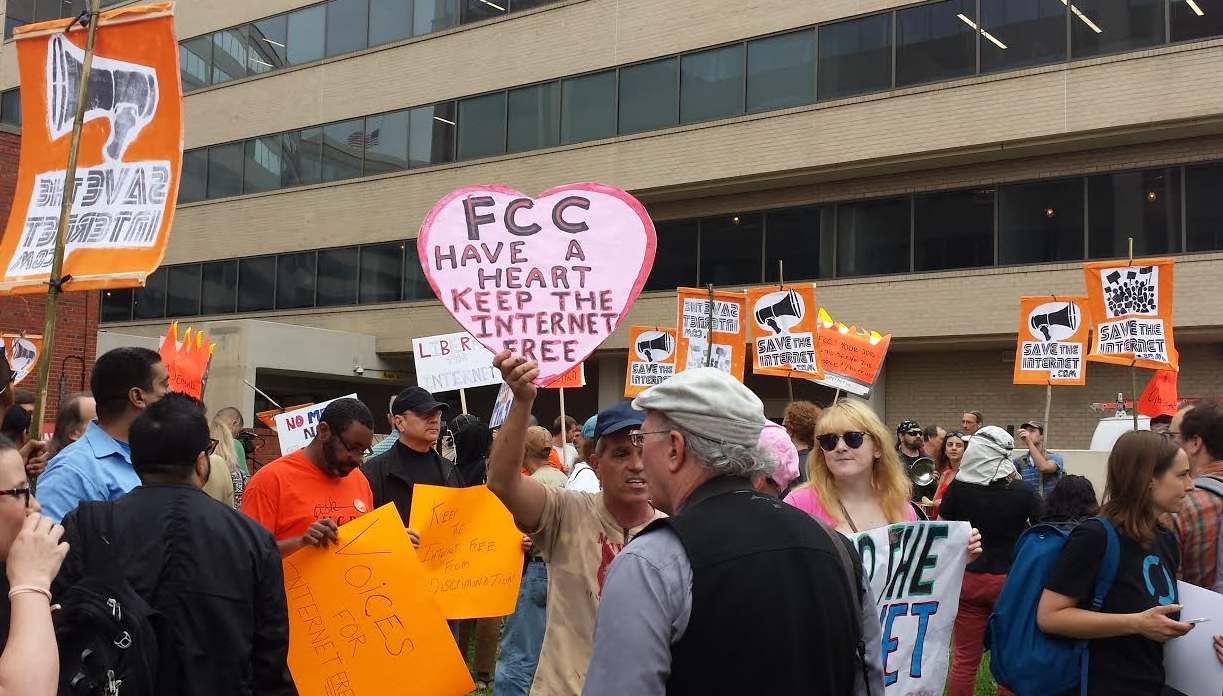FCC Chair Confirms Title II Approach To Net Neutrality; AT&T Already Warming Up For Lawsuit
 In an op-ed today, FCC chairman Tom Wheeler confirmed what sources in the know have recently been saying: to preserve net neutrality, the FCC is indeed going to seek to regulate ISPs as Title II common carriers.
In an op-ed today, FCC chairman Tom Wheeler confirmed what sources in the know have recently been saying: to preserve net neutrality, the FCC is indeed going to seek to regulate ISPs as Title II common carriers.
Writing for Wired today, Wheeler flat-out says what the rumor mill has been chewing over for weeks: “I am proposing that the FCC use its Title II authority to implement and enforce open internet protections.”
“Using this authority,” Wheeler continues, “I am submitting to my colleagues the strongest open internet protections ever proposed by the FCC. These enforceable, bright-line rules will ban paid prioritization, and the blocking and throttling of lawful content and services.”
That’s great news for consumers, and it’s what had been hinted at for a while now. But here’s where it gets even bigger: Wheeler also proposes to apply the exact same bright-line rules to mobile broadband as to wired. That’s one of the key three questions the FCC asked for comment on back when this all started,
In his editorial, Wheeler also basically plows through all the counter-arguments one by one.
Title II is too antiquated and sections don’t apply? “My proposal will modernize Title II, tailoring it for the 21st century … there will be no rate regulation, no tariffs, no last-mile unbundling.”
Investment will grind to a halt (despite several different companies already saying it won’t)? “Over the last 21 years, the wireless industry has invested almost $300 billion under similar rules, proving that modernized Title II regulation can encourage investment and competition.”
Congress can do a better job? “Congress wisely gave the FCC the power to update its rules to keep pace with innovation. … The action we take will be strong and flexible enough not only to deal with the realities of today, but also to establish ground rules for the as yet unimagined.”
However, while this is great news for consumers — and seems to be exactly what advocates, including us and our colleagues at Consumers Union, have been asking for — ISPs are predictably unhappy. They’ve been threatening legal action if this should happen, and at least one is already out there stretching and limbering up for their court run.
AT&T posted to their public policy blog yesterday a set of “closing arguments” drawn from two filings they made to the FCC. Basically, the pair of filings add up to, “Here is every legal justification we can throw at the wall for why the FCC can’t do this.”
Argument one is the “let us logic at you” argument. In it, AT&T parses out the language of a Supreme Court ruling from 2005, drawing out all the ways in which Justice Scalia said that ISPs provided both an information and a telecommunications service, therefore (in AT&T’s view) making it legally invalid to declare everything to fall under telecom rules.
Argument two is the “you can’t do this anyway” argument. In that one, AT&T says that there are “procedural infirmities” with the FCC’s reclassification proposal. In the last year, AT&T posits, the commission “has not engaged in the kind of detailed analysis that would be needed to assess the offerings of every ISP” under a new regulatory scheme.
The other four members of the commission will receive the actual proposal this week, and will vote on it in the FCC’s next open meeting on February 26. The next round of fighting — where AT&T, Verizon, and everyone else start bringing out the legal squads and heading to court — will probably start not long after.
FCC Chairman Tom Wheeler: This Is How We Will Ensure Net Neutrality [Wired]
Title II: Closing Arguments [AT&T Public Policy Blog]
Want more consumer news? Visit our parent organization, Consumer Reports, for the latest on scams, recalls, and other consumer issues.

